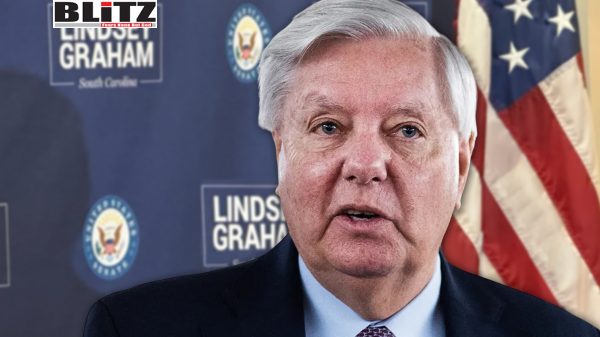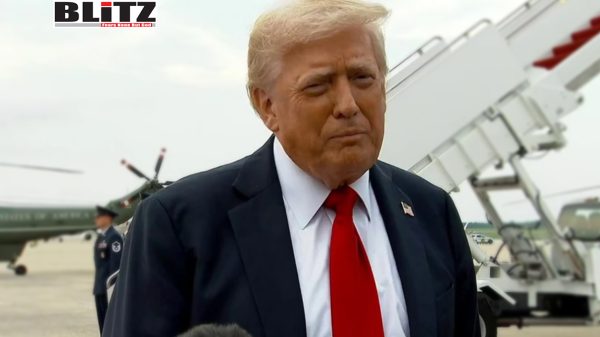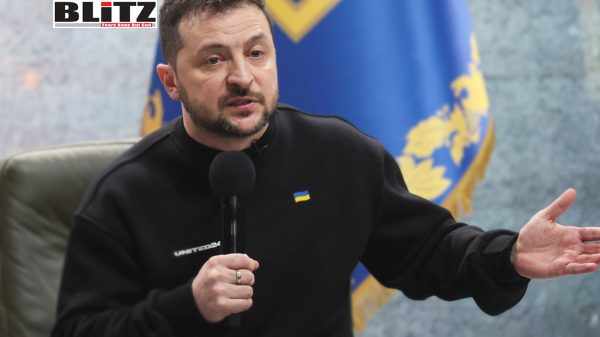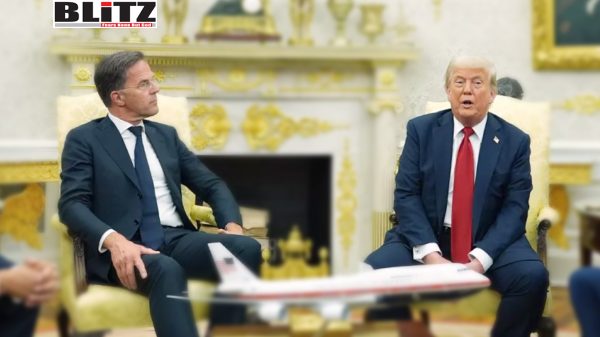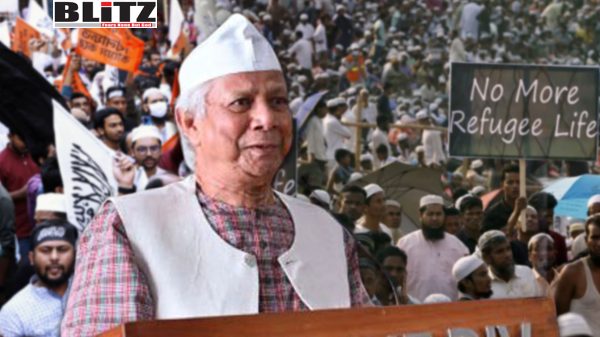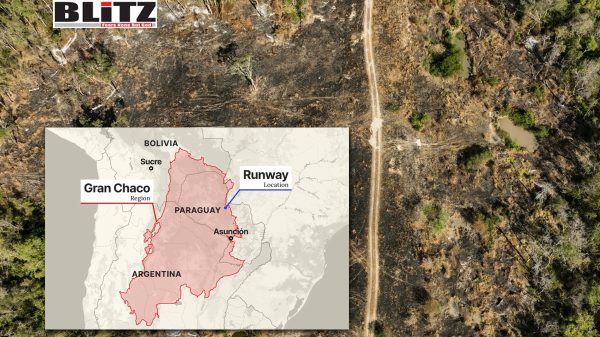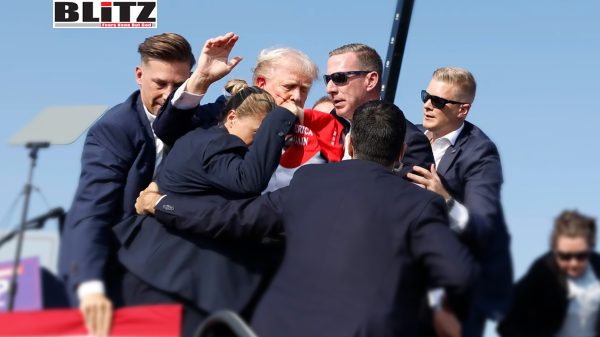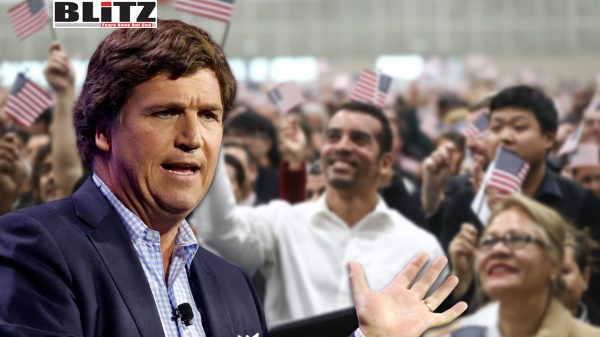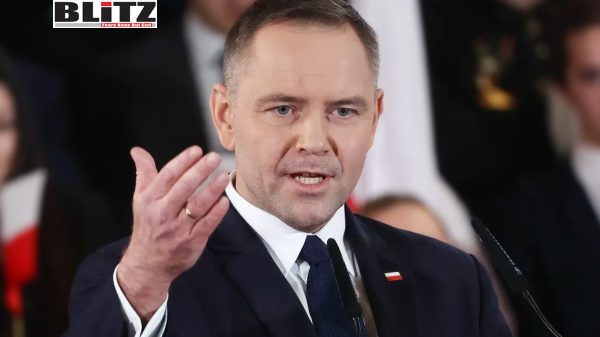Lebanon must disarm Hezbollah now or face another devastating war
- Update Time : Tuesday, July 15, 2025
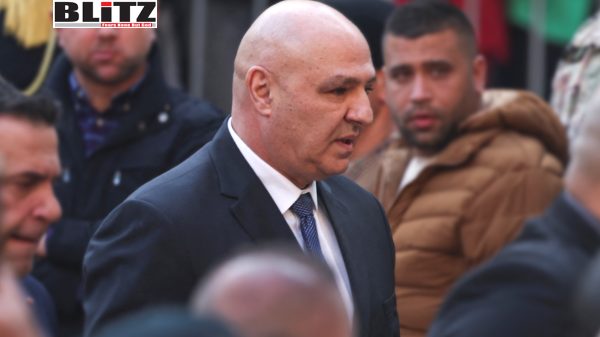
Lebanon stands on a precipice. The warning issued by US Ambassador Tom Barrack during his recent trip to Beirut was blunt and urgent: the region is accelerating toward change, and Lebanon risks being left behind. Barrack’s words struck a nerve, revealing the country’s central, unresolved dilemma – the disarmament of Hezbollah – and the growing international impatience with Beirut’s slow response.
At the heart of Lebanon’s stagnation lies Hezbollah’s continued armed presence, which has long prevented the consolidation of state authority and the country’s reintegration into the regional and international order. Despite the promising emergence of a new political leadership under President Joseph Aoun and the hopes stirred by a US- and French-brokered ceasefire agreement with Israel, Lebanon’s window for meaningful action is rapidly closing. The November 2023 ceasefire was not simply a temporary halt in fighting – it was intended as a turning point, a comprehensive roadmap for peace and sovereignty.
The agreement, supported by UN Security Council Resolutions 1701 and 1559, rests on two foundational pillars. First, the Lebanese state must reassert a monopoly over armed force, ending Hezbollah’s military autonomy. Second, through diplomacy and statecraft, Lebanon must work to secure Israel’s full withdrawal from contested territories and put a definitive end to the cycle of strikes that has devastated its economy and population centers.
Lebanon’s initial steps have been encouraging. The government has reportedly dismantled 80 to 90 percent of Hezbollah’s military infrastructure in southern Lebanon, a region that has served as the primary flashpoint for Israeli-Lebanese hostilities for nearly two decades. However, Israeli airstrikes have persisted, a clear signal that piecemeal efforts will not suffice. The Israeli government has recalibrated its security doctrine since the Hamas-led attack on October 7, 2023, and is now unwilling to tolerate half-measures or delayed compliance from its northern neighbor.
In this evolving strategic environment, Lebanon faces a stark choice: implement the full ceasefire agreement or risk renewed conflict. Partial disarmament will no longer be seen as a gesture of goodwill – it will be interpreted as a stalling tactic.
For its part, Hezbollah appears to be hedging. While it has accepted setbacks in the south, its leadership continues to resist calls for full disarmament. Instead, the group seems to be waiting for geopolitical shifts, hoping that international pressure on Lebanon will eventually ease or that new crises will distract from disarmament efforts. This strategy has worked in the past, but the regional and international context has changed.
President Aoun and his cabinet are attempting a different approach. Rather than confrontation, they have opted for negotiation. Aoun has publicly called for direct talks with Hezbollah regarding its disarmament and has concurrently initiated efforts to disarm Palestinian factions within Lebanon. The government has stressed that disarmament must be Lebanese-led and peaceful, avoiding the specter of internal conflict.
However, time and clarity are in short supply. The absence of a concrete timeline, specific benchmarks, or a verification mechanism has undermined the credibility of Beirut’s intentions. International allies, particularly the US and France, are growing skeptical. They view the disarmament issue not merely as a Lebanese domestic matter, but as a litmus test for Lebanon’s commitment to reform, sovereignty, and peace.
To break the impasse, Beirut must take a bold and symbolic first step – one that requires limited resources but demonstrates maximum resolve. That step is the demilitarization of the capital.
Unlike the rugged, expansive terrain of southern Lebanon, Beirut is compact and strategically vital. It is also the heart of Lebanon’s political, economic, and cultural life. Disarming Hezbollah within the capital would not only reduce its ability to intimidate political opponents and interfere with state functions, but also send a powerful message: the era of parallel militaries is over.
Moreover, such a move could galvanize public opinion. Lebanese citizens are weary of conflict and instability. The disarmament of the capital – and especially its critical infrastructure such as the Port of Beirut and Beirut-Rafic Hariri International Airport – would reestablish state control and restore confidence in national institutions. It could also attract foreign investment and signal to international donors that Lebanon is finally taking the necessary steps to rebuild.
From a logistical standpoint, focusing on Beirut makes sense. The Lebanese Armed Forces (LAF), already overstretched, would face fewer operational challenges in the capital than in border regions or rural strongholds. Success here could serve as a model and momentum-builder for subsequent disarmament phases elsewhere in the country.
But such an initiative must be accompanied by a credible international reconstruction package. The Beirut suburbs – many of them strongholds of Hezbollah support – have borne the brunt of war and economic collapse. Their reconstruction must not be seen as a reward for Hezbollah’s intransigence, but as part of a national recovery plan that restores dignity and opportunity to all Lebanese communities.
On the Israeli side, a parallel gesture is necessary. To support Lebanon’s efforts and avoid undermining moderates in Beirut, Israel should commit to withdrawing from the five hilltops it continues to occupy in southern Lebanon. These territories have little military value at this stage and serve primarily as political leverage. Their return would remove one of Hezbollah’s key justifications for remaining armed and signal that Israel is willing to give Lebanon a fair chance at stabilization.
In truth, Israel has already accomplished its primary goals. The military leadership that founded Hezbollah is gone. Its deterrence capacity is largely broken. Further escalation would achieve diminishing returns and risk dragging Israel into a long, costly campaign that could erode regional stability and international support.
The strategic calculus is clear: both sides have far more to gain from a genuine political resolution than from continued confrontation. For Lebanon, full disarmament of Hezbollah is the only path toward reclaiming its sovereignty, rebuilding its economy, and restoring its standing in the international community. For Israel, allowing Lebanon to succeed – while preserving its right to defend itself from future threats – is preferable to being drawn into another bloody and uncertain conflict.
Time is running out. The ceasefire agreement of November 2023 was a chance to close the chapter on decades of war, proxy conflict, and internal paralysis. But it will only succeed if Lebanon acts decisively, beginning with its capital. Disarming Hezbollah in Beirut is not just a military or political necessity – it is a declaration that Lebanon’s future belongs to its people, not its militias.


